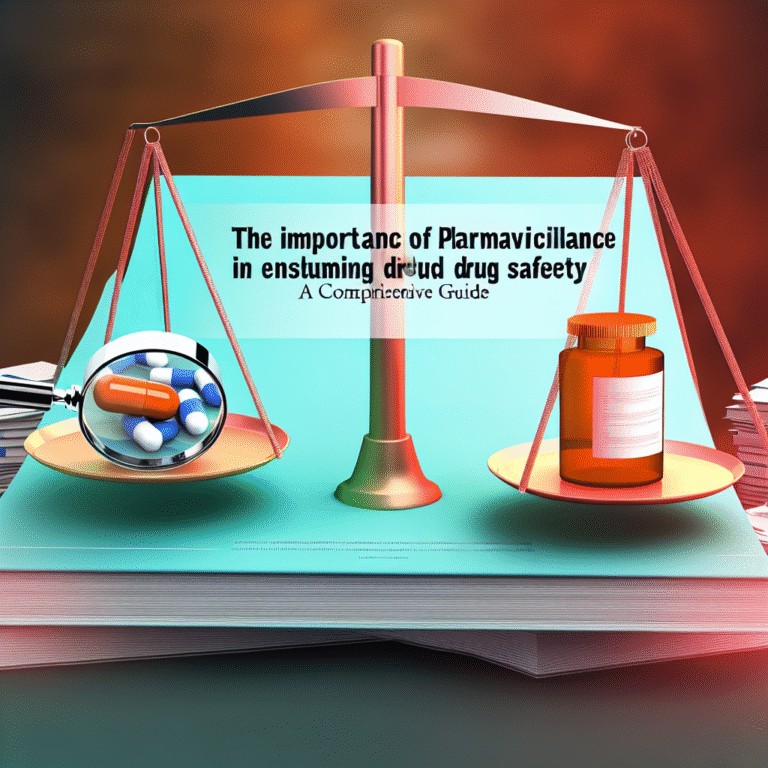Advancing Your Career: Steps to Become a Pharmacovigilance Specialist and Secure Remote Opportunities
Advancing Your Career: Steps to Become a Pharmacovigilance Specialist and Get Remote Jobs
Introduction
Today, medicine and healthcare are super important for us. That’s why the job of someone working in pharmacovigilance is so needed. Pharmacovigilance is all about spotting and understanding side effects of drugs and stopping problems before they happen. As more people look for specialists in this area, especially for jobs you can do from home, it’s a great time to think about getting better at your job in this field. This guide will help you understand what you need to do to become a pharmacovigilance specialist and get work-from-home jobs.
What is Pharmacovigilance?
Pharmacovigilance means finding, looking at, and understanding problems caused by drugs. It helps keep people safe and makes sure that drug companies are honest with everyone.
If you work as a pharmacovigilance specialist, some things you might do are:
1. Collecting and studying information on how safe medicines are.
2. Watching and telling others about bad reactions to drugs.
3. Writing big reports for groups that control medicine.
4. Watching for and managing risks with medicines.
5. Working with different teams to make drug safety better.
What You Need to Know and Have
Educational Background
To start working in pharmacovigilance, you need the right education. Having a degree in pharmacy, life sciences, medicine, or something similar is very helpful. This education helps you understand how drugs interact and keep people safe.
Important Skills for Pharmacovigilance
1. Paying attention to details and thinking carefully is key to figuring out hard safety information and spotting patterns.
2. Communicating and working well with others is important for sharing safety info with healthcare workers and other groups.
3. Solving problems and making choices help you act fast when there are safety issues.
4. Knowing how to use special computer programs, like ARGUS or Oracle, is important for handling information.
Certifications and Courses
Getting certifications in Drug Safety and Pharmacovigilance can make you stand out. They show you know special stuff and are serious about the job. Staying on top of things by taking online courses and going to workshops keeps you up-to-date with what’s new in the field.
Getting Experience in Pharmacovigilance
1. Look for starting jobs and internships to gain real-world experience.
2. Help out in healthcare places to see how things work in real life.
3. Meet others in the field through meetings and online chats to create connections and find mentors.
Steps to Grow in Your Career
Step 1: Learn More
Go for advanced degrees or specialized courses to understand pharmacovigilance processes better.
Step 2: Make Friends in the Field
Go to industry meetings and join professional groups to meet others in the field.
Step 3: Get Practical Experience
Join pharmacovigilance projects and case studies to put your learning to use.
Step 4: Improve with Feedback
Ask peers and bosses for feedback to find ways to get better at your skills.
Step 5: Learn Leadership
Take courses in leadership and look for jobs with more responsibility for managing teams.
Tips for Getting Remote Pharmacovigilance Jobs
Create a Great Resume
Include your remote work skills and pharmacovigilance experience. Show that you can work on your own and manage projects from home.
Use Online Job Sites
Look at places like LinkedIn and specific job boards for remote job listings. Join professional networks to hear about job chances.
Get Ready for Online Interviews
Get used to online communication tools and practice answering interview questions online.
Look at Freelance and Contract Work
Sites like Upwork or Freelancer can be places to find freelance pharmacovigilance work, giving you flexibility and varied experiences.
Stay Updated with What’s New
Read industry newsletters, join online sessions, and talk with others who focus on pharmacovigilance to keep your knowledge fresh.
Facing Challenges of Remote Pharmacovigilance Jobs
Working from home is flexible but can come with challenges like feeling lonely, not communicating well, and balancing work with home life. Here’s how to handle them:
1. Have regular online meetings with your team to stay connected.
2. Use tools like Slack or Microsoft Teams to help chat with others.
3. Make clear work and home life boundaries to keep things balanced.
Conclusion
Getting better in pharmacovigilance means you are ready to keep learning and develop your skills. By growing your education, meeting others in the field, building your skills, and using technology for remote work, you can land remote pharmacovigilance jobs. As work changes, take these chances and keep helping with drug safety and the health industry.






